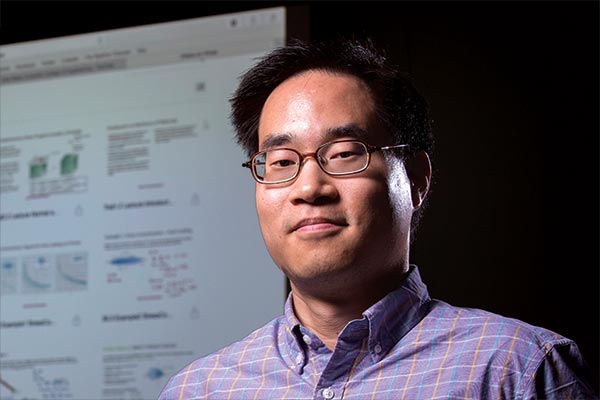
Benjamin Ahn’s research goal is to identify the best educational approaches for educating new generations of engineers, using technology tools available today.
“The next generation of engineers will face new challenges, and we have new technology tools to help educate and prepare students,” says Ahn, assistant professor of aerospace engineering. “But technology is only as good as how we use it. Understanding what techniques work best, and why, is the first step to offering evidence-based best practices that develop outstanding future engineers.”
Ahn studies three approaches that can help improve educational experiences for undergraduate students in engineering.
Technical content mastery
Ahn is investigating how technology can help engineering students master the technical content in their fields. He is studying how students in large-enrollment foundational engineering courses use and respond to instructional videos.
Some initial findings are surprising (videos any length between 1 and 20 minutes are played and completed at the same rate), while others match expectations (videos are most watched in the few days before exams). Ahn will use his research results to make evidence-based recommendations for how instructors can use video to facilitate student learning in engineering courses.
“Improving how we teach technical courses is hugely important because the classes form the foundation of an engineer’s knowledge, and large-enrollment courses can be particularly challenging for students, including those who are underrepresented in engineering. Engagement and success in first- and second-year courses is key to engineering student retention,” says Ahn.
Polished professional skills
Knowing technical engineering content is a must, but in today’s globalized, collaborative world, it’s no longer enough. Tomorrow’s engineers will need exceptional skills in teamwork, particularly working with those in different disciplines and from different cultures. Ahn is also studying how to best instill and assess students’ professional skills.
“Professional skills cannot be taught or measured on paper, so I’m particularly interested in using technology and hands-on practice to convey information and conduct real-time, holistic assessments of students’ development in systems-level thinking, communication, ethics and all the skills our future engineers will need,” says Ahn.
Valuable research mentoring
“Successful engineers apply and generate new technical content to help expand their fields, so giving students practice in undergraduate research experiences is a must,” says Ahn. “And one of the most important aspects to high-quality research experience is receiving mentoring from more experienced engineers.”
Ahn is pioneering the use of technology to better understand what parts of complex mentoring relationships are key to creating positive student experiences. He is developing new ways to measure mentoring practices and understand effects of positive mentoring on student outcomes, all with an eye on creating a research-based mentoring training program.